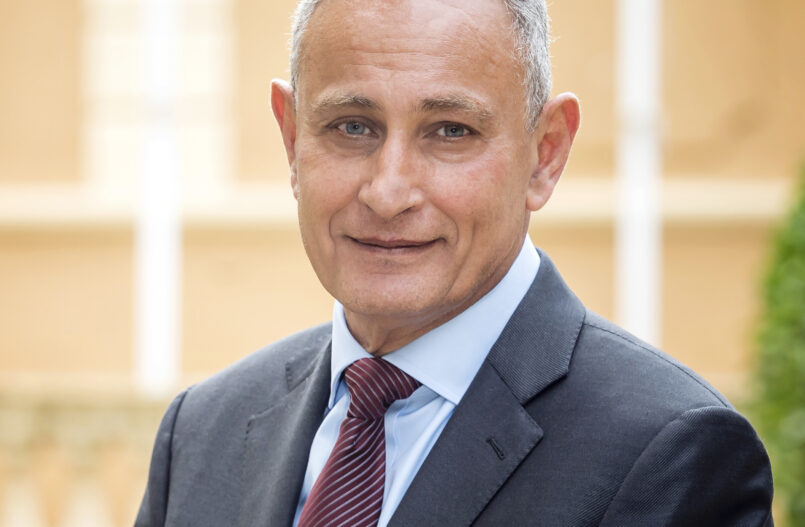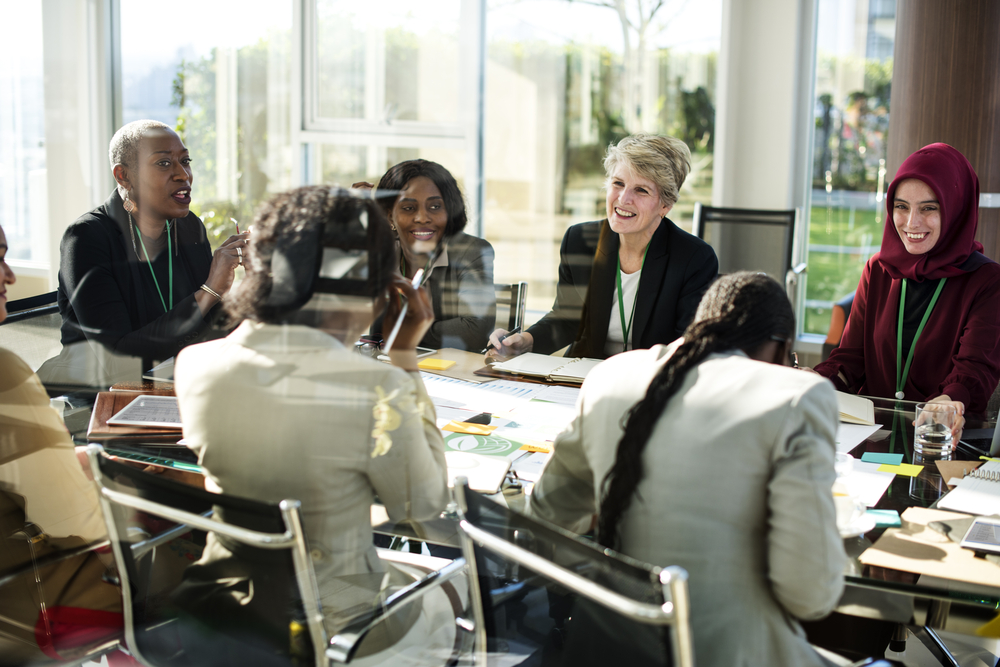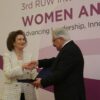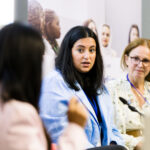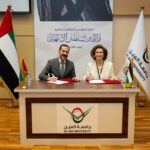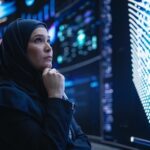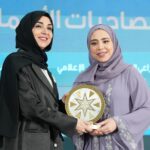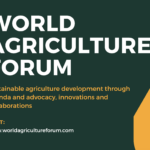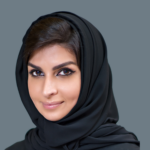In recognition of the 25th anniversary of the Barcelona Process, AIWF focused in early October on the situation and opportunities for countries in the Euro- Mediterranean with a session titled 25 Years after the Barcelona Process: The UfM on Women & Inclusive, Sustainable Development in the MENA Region. For this session, AIWF was proud to build on our history with the Barcelona Process and our long collaboration with the Union for the Mediterranean (UfM), the inter-governmental Euro-Mediterranean organization which brings together all countries of the European Union and 15 countries of the Southern and Eastern Mediterranean.
It was an honour to welcome HE Nasser Kamel, Secretary General of the UfM, to share the UfM’s key mission and collaborative, partnership-driven approach to nurturing and empowering women in the social and economic spheres; generating much needed job creation, career progression and economic inclusion opportunities for women and young people in the UfM countries; and sustainable development and climate action in the UfM countries in the context of food/water/energy security challenges.
In her introduction, AIWF Chairman highlighted that the COVID-19 crisis was an opportunity to rethink women’s role in the economy and that it was also compelling all stakeholders, governments, institutions and civil society to come together and prioritise creative policymaking through unprecedented cross-border collaboration, data-driven decision making, data sharing, and bold economic measures. She reiterated how proud AIWF is of the close links and co-operation with the UfM for over a decade, on women’s entrepreneurship, youth empowerment, and sustainable development in the region, and of all valued engagement with the UfM Secretariat.
In his Keynote Address, the UfM Secretary General Nasser Kamel underlined that the UfM has always put gender equality, women’s empowerment and the challenge of ending Violence Against Women and Girls at the centre of its agenda. Amidst a global pandemic and a strong economic crisis, a gender aware response is particularly vital. Women and girls have been mainly affected by the COVID-19 social and economic fallouts.
According to UN Women and UNDP, by 2021 around 435 million women and girls will be living on less than $1.90 a day including 47 million pushed into poverty as a result of COVID-19. Moreover, the UN estimates that women in the Arab world will lose more than 700,000 jobs. This is explained by the fact that some of the sectors hardest hit by the pandemic, characterized by low pay and poor working conditions, are women dominated sectors. In this context, women’s leadership and voices are paramount and will help to ensure a more equitable and better recovery.
A gender-awareness response to COVID-19 should rely also on reliable gender data collection and on the research on the gendered impacts of COVID-19. As a valuable contribution to achieve this objective, the UfM Member States endorsed a unique intergovernmental set of twenty indicators as part of the UfM Ministerial follow-up mechanism that will allow to aggregate relevant data, monitor progress, evaluate the gender gap and provide recommendations to policymakers and stakeholders. All these challenges, he shared, would be addressed and discussed in the framework of Women High Level Conference, Accelerating Gender Equality in the context of the Covid-19 pandemic.
The Secretary General said: “The Beijing Platform for Action and the targets of the SDGs continue to be relevant road maps for action, and it is more crucial than ever to achieve them. Without coordinated action to mitigate the gendered impacts of COVID-19, there is a risk that the fragile gender equality gains achieved over the past 25 years will be lost”.
Moreover, His Excellency underlined the relevance of Social Economy, which alone constitutes more than 3.2 million enterprises and 15 million jobs across the Euro-Mediterranean region. Beyond delivering social and economic value, Social Economy is a smart way to recover from this pandemic by unlocking resources, creating sustainable employment and generating regional economic growth.
Climate change was also addressed as one the major threats to the planet. The COVID-19 pandemic has pushed key environmental challenges out of the agenda, while temperatures and sea levels continue rising. In this context, His Excellency urged us all to address the effects of global warming before it takes an irreversible toll on the Mediterranean Basin and its population.
Ambassador Kamel’s speech ended on a very reflective and bold note, stating that settling for the status quo was no longer an option and highlighting that, if we wanted to tackle gender equality, economic empowerment and climate change, resilience and regional cooperation needed to be at the heart of the pandemic recovery.
As for digitisation and youth tech enterprises, the Secretary General stated that he was a strong believer in creative industries and digital economy as a crucial way to advance youth employment and economic growth, and that the UfM wishes to channel the potential of digitalization by bringing best practices to the region and by enhancing not only north-south cooperation but also south-south cooperation. The Secretary General underlined that, while furthering regional digitalization remains a priority, we must make sure that nobody is left behind. With reference to the role of the civil society, he asserted that the contribution of civil society has been pivotal in the development of the Euro-Mediterranean partnership since the inception of the Barcelona Process. The DNA of UfM is oriented towards empowering civil society as a whole because they are the drivers of any social, economic and political evolution.
This year marks 25 years since the Barcelona Process was launched in 1995 with the aim to strengthen relations between Europe and the Southern Mediterranean countries, within the framework of an enhanced Euro-Mediterranean association contributing to peace and security in the region and creating the UfM in July 2008. AIWF is proud to have been a part of the celebrations for the 25thAnniversary of the Barcelona Process, and to have the UfM as a key partner in our international advocacy network, with which we share the core mission of ensuring sustainable, equitable progress for women and young people in the region and beyond.




